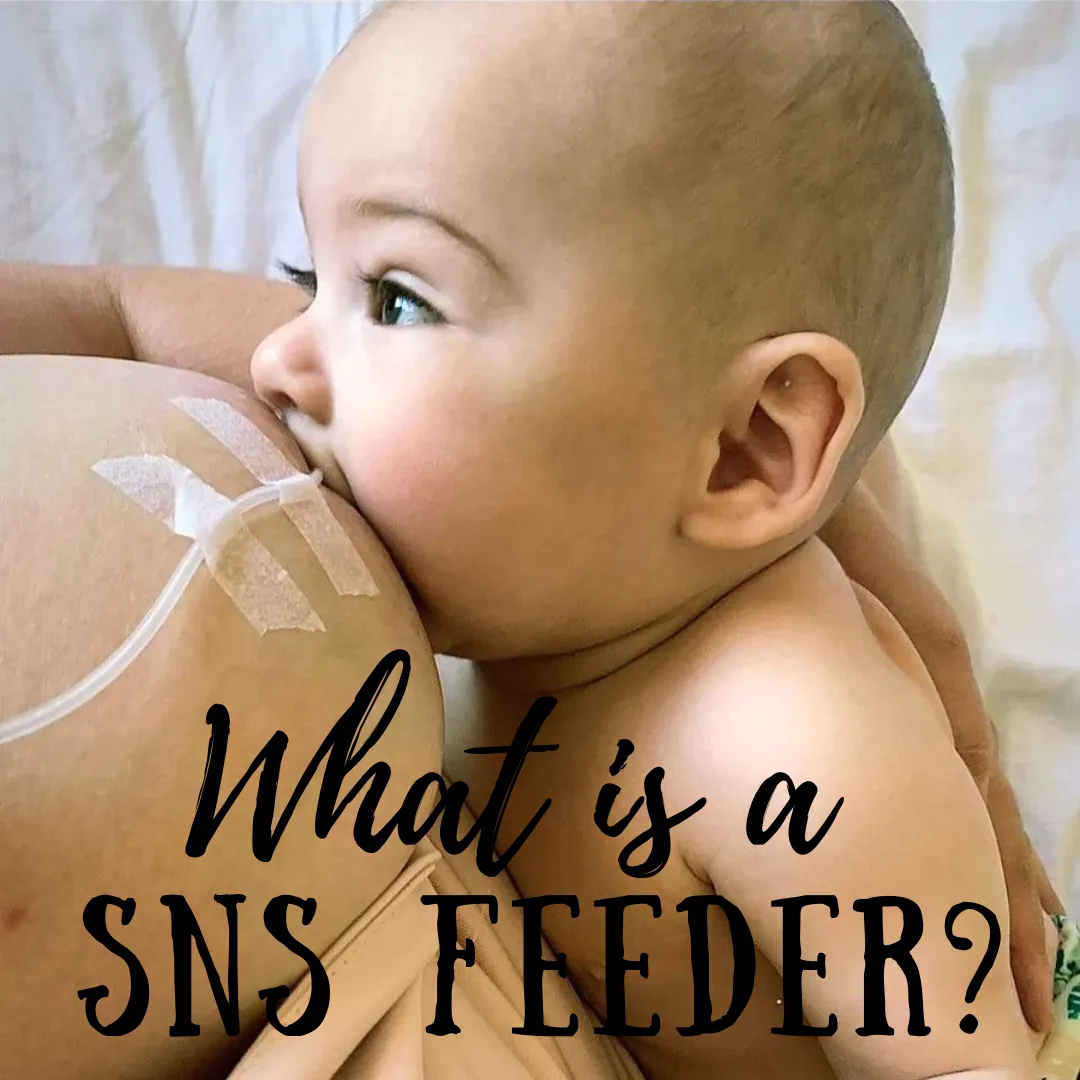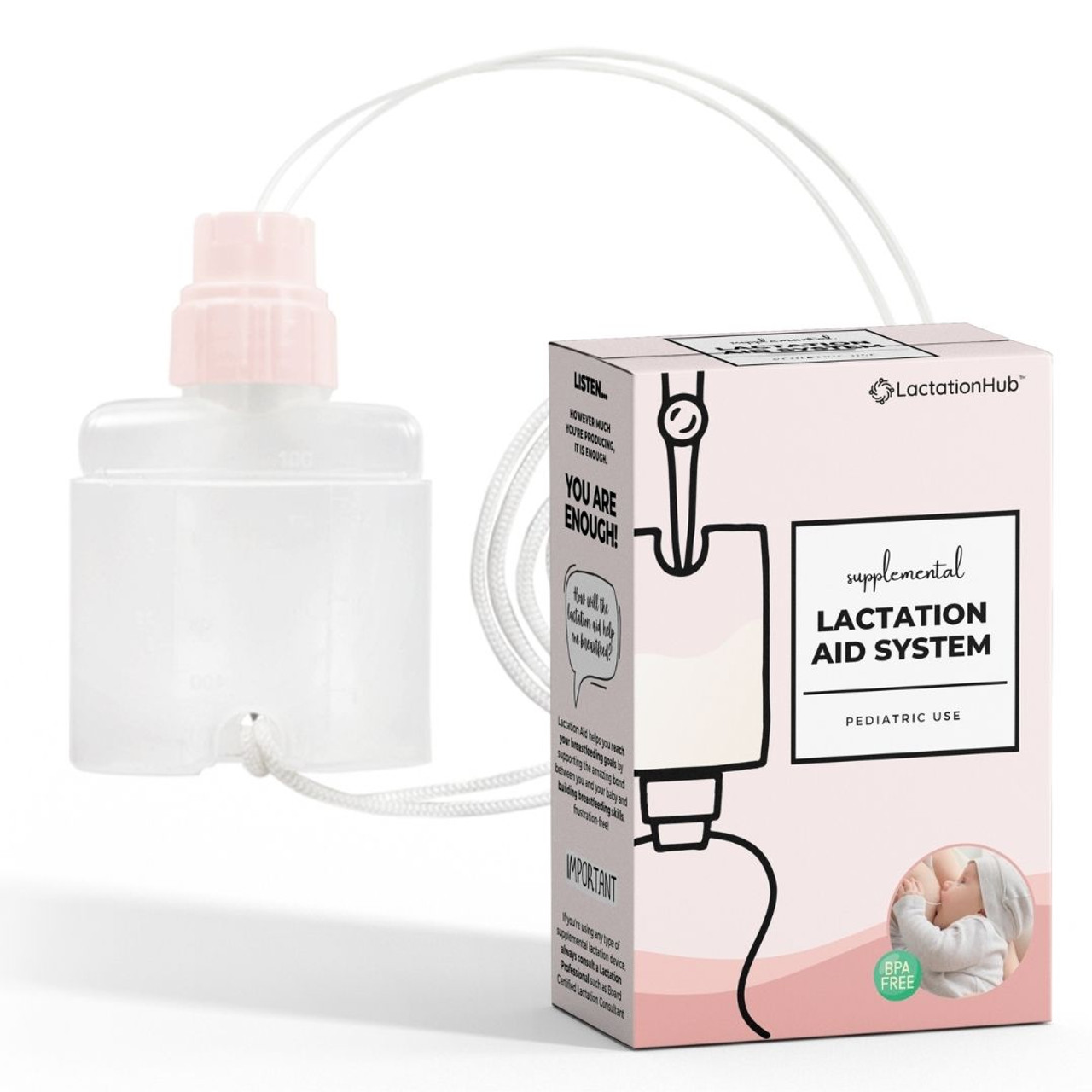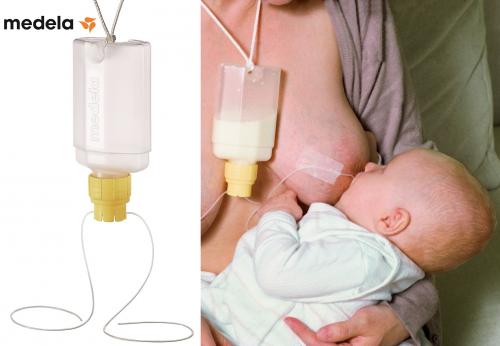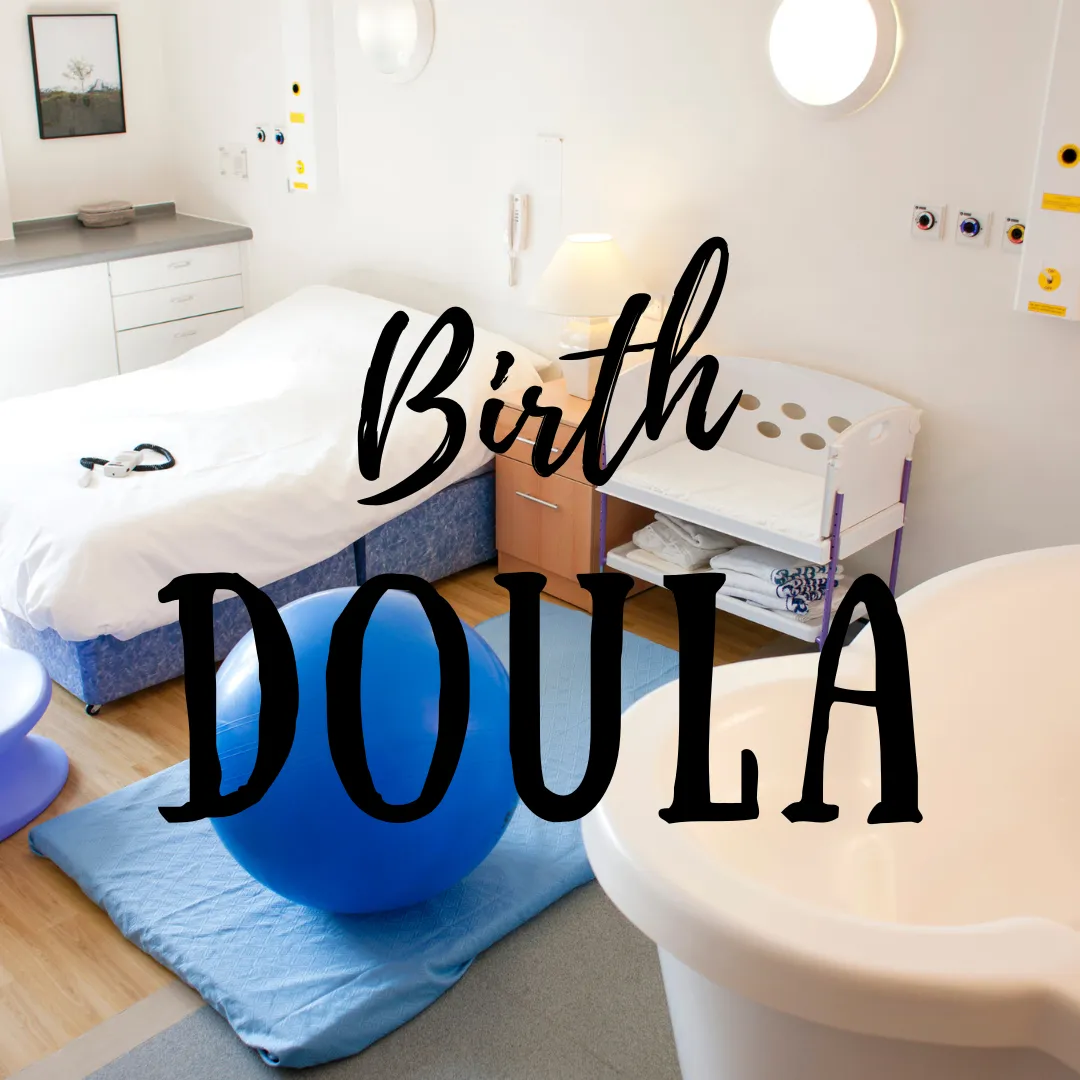What is a SNS Feeder?
Breastfeeding is a natural and beautiful way for a mother to nourish her baby. However, there are instances where breastfeeding alone may not provide the required nutrition or support. In such cases, a Supplemental Nursing System (SNS) Feeder can be a valuable tool. This blog post aims to shed light on what an SNS feeder is, how it can be beneficial, who can use it, and what factors to consider when choosing one.
What is a Supplemental Nursing System (SNS) Feeder?
An SNS feeder is a device specifically designed to support breastfeeding by providing supplemental nutrition to the baby while they are latched onto the breast. It consists of a container to hold the supplementary milk or formula, a thin and flexible tube, and a feeding system. The tube is securely attached to the mother's nipple or finger and allows the baby to receive additional nourishment while breastfeeding, ensuring they receive the necessary sustenance for optimal growth and development.
(we are not affiliated or sponsored by HAAKA)
How do SNS Feeders Help?
SNS feeders offer a multitude of benefits for both mother and baby, making them an invaluable tool in the breastfeeding journey:
1. Ensuring adequate nutrition: SNS feeders provide a lifeline for babies who may struggle to effectively extract milk from the breast. By delivering supplemental nutrition directly to the baby's mouth, these feeders ensure that the little one receives the vital nutrients they need to thrive.
2. Stimulating milk supply: One of the remarkable advantages of SNS feeders is their ability to stimulate the mother's milk production. As the baby suckles on the breast while benefiting from the supplemental nutrition, the mother's body receives signals to produce more milk, ultimately leading to an increased milk supply.
3. Promoting bonding and comfort: The use of SNS feeders allows for precious skin-to-skin contact between the mother and baby, fostering a deep sense of bonding and emotional connection. This physical closeness not only promotes a strong mother-child relationship but also provides a comforting and secure environment for the baby to feel nurtured and loved.
4. Assisting with breastfeeding challenges: SNS feeders can be a game-changer for babies facing various breastfeeding challenges. Whether it's a latch issue, inadequate weight gain, or difficulty transitioning between bottle and breast, these feeders offer a supportive solution by ensuring the baby receives the necessary nutrition while still being encouraged to breastfeed.

Who can use SNS Feeders?
SNS feeders are a versatile tool that can be used by a range of individuals, including:
1. Mothers with low milk supply: For mothers who may be struggling with low milk supply, SNS feeders can be a lifeline. By providing supplemental nutrition, these feeders not only ensure the baby's nutritional needs are met but also help stimulate the mother's body to produce more milk, ultimately improving her milk supply.
2. Babies with latch difficulties: Babies who face challenges with latching can greatly benefit from the innovative design of SNS feeders. The tube attached to the mother's nipple or finger ensures that the baby receives the necessary nourishment, even if they are unable to latch effectively.
3. Adoptive parents or surrogates: SNS feeders provide an incredible opportunity for adoptive parents or surrogates to simulate the breastfeeding experience. By using these feeders, they can offer a nurturing and bonding experience for the baby, promoting a sense of love and security.

(we are not affiliated or sponsored by LactationHub)
What to Look for When Choosing an SNS Feeder:
When considering an SNS feeder, it is important to keep the following factors in mind:
1. Ease of use: Look for an SNS feeder that is simple to assemble, clean, and use without causing any discomfort to both you and your baby. The last thing you want is a complicated and fussy device that adds unnecessary stress to your breastfeeding journey.
2. Adjustable flow rate: Opt for an SNS feeder that allows you to adjust the flow rate according to your baby's needs. Every baby is unique, and being able to customize the flow ensures a comfortable feeding experience for your little one.
3. Comfortable and secure attachment: It is crucial to ensure that the tube attachment to the nipple or finger is secure and comfortable for both you and your baby during feeding sessions. A loose or uncomfortable attachment can cause frustration and hinder the effectiveness of the SNS feeder.
4. Durability and portability: Choose an SNS feeder made from high-quality materials that can withstand frequent use. The demands of breastfeeding can be intense, and having a durable feeder that can keep up with your needs is essential. Additionally, consider the portability of the feeder. Look for a compact and travel-friendly option that can be easily carried when you are on the go.

(we are not affiliated or sponsored by medela)
Pros & Cons of using SNS Feeder:
Pros:
1. Improved milk supply: Supplemental Nursing System (SNS) can help stimulate milk production in cases where a baby is not effectively transferring milk during breastfeeding. By providing additional milk at the breast, SNS can increase milk supply over time.
2. Enhanced bonding: SNS allows for skin-to-skin contact between the mother and baby, promoting bonding and emotional connection. This can be particularly beneficial for adoptive mothers or those who have had limited breastfeeding opportunities due to medical reasons.
3. Supports breastfeeding relationship: SNS can be a helpful tool for mothers who want to breastfeed but are facing challenges such as low milk supply or nipple confusion. It allows the baby to receive supplemental milk while still being at the breast, encouraging the breastfeeding relationship.
4. Provides nutrition: SNS ensures that the baby receives adequate nutrition while breastfeeding. This can be especially important for premature or underweight babies who may need additional calories and nutrients to thrive.
Cons:
1. Complexity: Using SNS can be more complicated compared to traditional breastfeeding. It involves setting up the system, ensuring the correct flow of milk, and managing the tubes and containers. This complexity may be overwhelming for some mothers, especially in the early stages of breastfeeding.
2. Time-consuming: Using SNS can be time-consuming, as it requires additional preparation and cleaning of the system after each use. This can be challenging for mothers who are already dealing with the demands of breastfeeding and caring for a newborn.
3. Potential discomfort: Some mothers may find the tubes and containers of the SNS system uncomfortable or cumbersome. It may take time to get used to the feeling of the tubes and ensure they are positioned correctly to avoid discomfort or potential leakage.
4. Cost: Supplemental Nursing System can be an additional expense for breastfeeding mothers. The cost of purchasing the system and ongoing supplies, such as tubing and containers, can add up over time.
It's important to note that the decision to use a Supplemental Nursing System should be made in consultation with a healthcare professional or lactation consultant who can provide personalized guidance based on individual circumstances.
Pro tip for any lactation journey
Feeling good mentally and physically is crucial during the lactation journey. Taking care of one's mental and physical well-being helps ensure a successful and enjoyable breastfeeding experience for both the mother and the baby.
Mental well-being plays a significant role in lactation. Stress, anxiety, and other negative emotions can interfere with milk production and letdown reflex. Creating a positive mindset and managing stress levels can help promote a healthy milk supply. Engaging in activities that promote relaxation, such as deep breathing exercises, meditation, or gentle exercise, can be beneficial for maintaining mental well-being during lactation.
Physical well-being is equally important. A well-nourished body has the resources to produce an adequate milk supply and meet the nutritional needs of the baby. Prioritizing a balanced diet, including plenty of fluids, can support optimal lactation. It is also essential to get enough rest and sleep to sustain energy levels and promote overall physical wellness.
Having a good support system is paramount during the lactation journey. Surrounding oneself with understanding and encouraging individuals can provide emotional support and guidance. This support system can include partners, family members, friends, or lactation consultants who can offer advice, answer questions, and provide reassurance. Joining breastfeeding support groups or seeking professional help when needed can also contribute to a positive and successful lactation experience.
Conclusion:
Supplemental Nursing System (SNS) feeders are invaluable tools that provide crucial support for breastfeeding mothers and their babies. Whether you are facing challenges with milk supply, latch difficulties, or simply seeking to enhance the breastfeeding experience, an SNS feeder can be an excellent solution. By considering the numerous benefits, potential users, and key factors when choosing an SNS feeder, you can make an informed decision and find the perfect device to meet your specific needs. Embark on your breastfeeding journey with confidence, knowing that an SNS feeder can offer the necessary support and nourishment for a successful and fulfilling experience.



